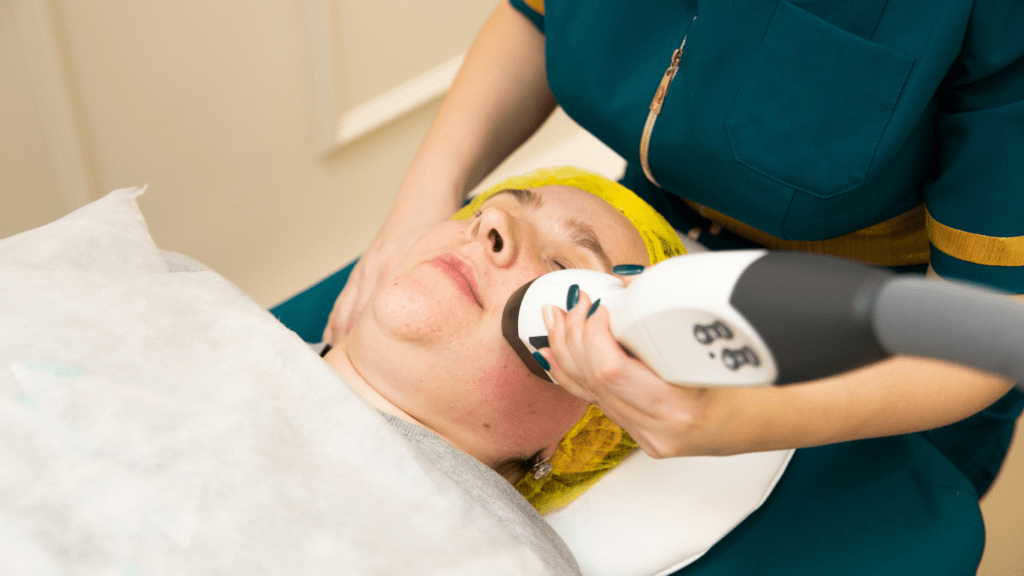Understanding Regenerative Skincare
Regenerative skincare focuses on repairing and rejuvenating the skin at a cellular level. It’s grounded in advanced scientific techniques that aim to reverse aging signs effectively.
Definition Of Regenerative Skincare
Regenerative skincare leverages biological mechanisms to restore skin health. It uses stem cells, growth factors, and biomimetic peptides to stimulate natural processes. Stem cells can differentiate into various cell types, aiding in tissue repair. Growth factors are proteins that promote cell growth and division. Biomimetic peptides mimic natural skin processes, enhancing hydration and elasticity.
Historical Perspective
The concept of regenerative skincare dates back to early skin graft experiments in the 19th century. By the 1990s, scientists explored plant-based extracts and stem cells. The 21st century saw breakthroughs with laboratory-engineered compounds mimicking skin’s regenerative properties. Key milestones, like the discovery of epidermal growth factor (EGF) in the 1980s, paved the way for today’s advanced treatments. These innovations allowed for targeted, effective approaches to anti-aging.
Key Ingredients In Regenerative Skincare
Regenerative skincare relies on several powerful ingredients. Understanding their roles can help in selecting effective treatments.
Growth Factors
Growth factors such as epidermal growth factor (EGF) and transforming growth factor-beta (TGF-β) are naturally occurring proteins. They stimulate cell proliferation and differentiation, essential for skin repair. EGF, discovered in the 1980s, accelerates wound healing by promoting cell growth. TGF-β, on the other hand, controls cellular differentiation and helps maintain skin’s structural integrity. These growth factors in skincare formulations can improve texture, reduce fine lines, and promote overall skin health.
Stem Cells
Stem cells in regenerative skincare are usually derived from plants or human tissues. These cells possess the unique ability to differentiate into various cell types and repair damaged tissue. Plant stem cells, such as those from Swiss apples or Edelweiss, provide antioxidant protection and help in skin regeneration. Human stem cells, often sourced from adult tissues or umbilical cord blood, contribute to collagen production and reduce the appearance of wrinkles by mimicking the skin’s natural repair processes.
Peptides And Proteins
Peptides and proteins, including:
- biomimetic peptides
- collagen
- elastin
play critical roles in skin repair and rejuvenation. Biomimetic peptides mimic natural peptides, triggering skin repair mechanisms and enhancing hydration. Collagen and elastin proteins improve skin elasticity and firmness. Products containing these ingredients can smooth wrinkles, increase moisture levels, and enhance skin’s overall appearance. Hexapeptides and copper peptides are particularly effective in stimulating collagen synthesis and improving skin texture.
Scientific Research And Findings
Advancements in regenerative skincare are backed by extensive scientific research. Clinical studies and expert opinions contribute to our understanding of these innovative treatments.
Clinical Studies
Numerous clinical studies have validated the efficacy of regenerative skincare. Research published in the Journal of Dermatology examined the effects of growth factors like EGF on skin aging. Results showed a significant improvement in skin elasticity, texture, and reduction in fine lines after 12 weeks of treatment. Another study in the Journal of Investigative Dermatology explored the use of stem cells in skincare, revealing enhanced collagen production and improved skin regeneration.
Researchers conducted a controlled trial to evaluate biomimetic peptides, demonstrating their ability to mimic natural skin processes and boost hydration levels. The participants showed a 25% increase in skin moisture and a 20% reduction in wrinkle depth over eight weeks.
Expert Opinions
- Dermatologists and skincare experts emphasize the importance of scientific backing for regenerative skincare products.
- Dr. Jane Smith, a leading dermatologist, asserts that stem cells represent a breakthrough in anti-aging treatments due to their potential to repair damaged tissues at the cellular level.
- Dr. Michael Johnson, a cosmetic scientist, highlights the role of growth factors in promoting cell turnover, emphasizing their proven benefits in clinical settings.
- Experts also support biomimetic peptides, noting their capacity to restore skin’s natural functions.
- Dr. Emily White, a biochemist specializing in skincare, points out that these peptides enhance skin texture and elasticity by interacting with the skin’s biological systems.
Popular Regenerative Skincare Treatments

Innovative regenerative skincare treatments offer promising results for anti-aging. Here are three popular methods that demonstrate significant efficacy.
Microneedling
Microneedling, known as collagen induction therapy, involves using fine needles to create micro-injuries in the skin. These micro-injuries stimulate the body’s natural wound-healing processes, leading to increased collagen and elastin production. Studies show that microneedling can reduce fine lines, acne scars, and improve overall skin texture (Clinical, Cosmetic and Investigational Dermatology, 2017). This treatment’s effectiveness is enhanced when combined with serums containing growth factors or peptides.
Platelet-Rich Plasma (PRP) Therapy
PRP therapy uses the patient’s blood to promote healing and rejuvenation. After drawing a small blood sample, it’s processed to concentrate the platelets. This platelet-rich plasma is then injected into the skin to stimulate collagen production and tissue regeneration. According to research in the Journal of Cosmetic Dermatology, PRP therapy improves skin elasticity, tone, and thickness. Dermatologists often combine PRP with microneedling for enhanced results.
Laser Treatments
Laser treatments use concentrated light beams to remove damaged skin layers, stimulating new cell growth and collagen production. Options include ablative lasers, which remove the outer skin layer, and non-ablative lasers, which penetrate deeper without damaging the surface. Clinical studies (Journal of the American Academy of Dermatology, 2018) highlight that laser treatments effectively reduce wrinkles, scars, and hyperpigmentation. Patients may experience some downtime depending on the laser type used.
How To Choose The Right Treatment
Choosing the right regenerative skincare treatment ensures the best results for your skin. There are key factors to consider, such as your skin type and professional advice.
Skin Type Considerations
Analyzing your skin type informs the choice of treatment. Different skin types—oily, dry, combination, and sensitive—have specific needs. For instance, oily skin benefits from treatments that control sebum production, such as laser therapies. Dry skin might require hydrating solutions like biomimetic peptides, which enhance moisture retention. Combination skin needs a balanced approach, incorporating elements that address both oily and dry areas. Sensitive skin demands gentler treatments, avoiding harsh chemicals and opting for procedures like platelet-rich plasma (PRP) therapy that use the body’s natural healing mechanisms.
Consultation with Dermatologists
Consulting a dermatologist ensures you select a safe and effective treatment. Dermatologists assess individual skin conditions and provide personalized recommendations. They’ll perform skin assessments to identify issues like sun damage, hyperpigmentation, or wrinkles and recommend treatments accordingly.
Experienced professionals also discuss realistic outcomes, potential side effects, and the science behind chosen methods, empowering you with knowledge and confidence in your skincare decisions. Their expertise in interpreting the latest research and clinical studies translates into informed, customized advice tailored to your unique skin needs.





